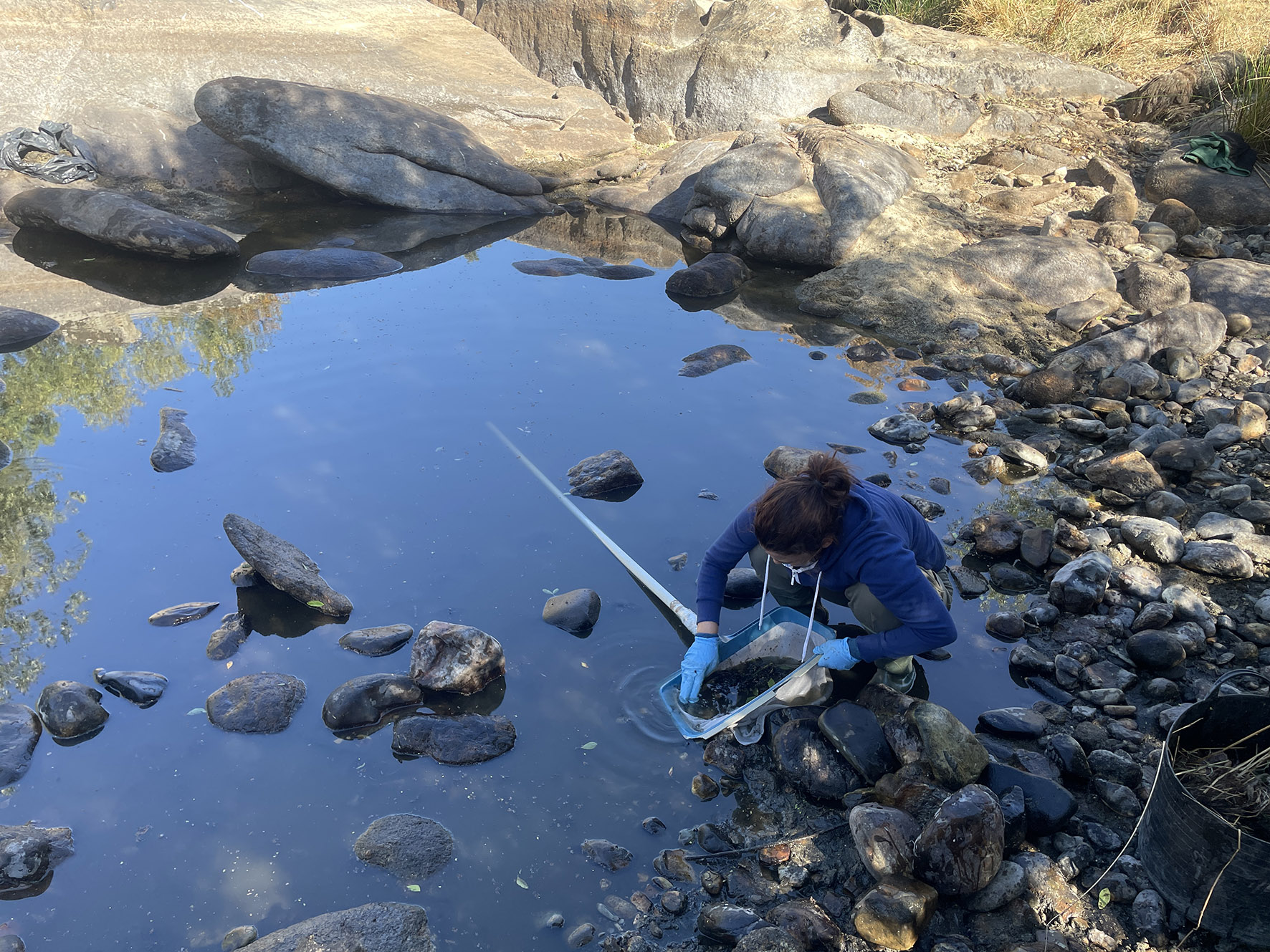The LIFE Alnus Taejo project (LIFE20 NAT/ES/000021) “Conservation and restoration of Mediterranean alder forests, a priority habitat in the Western Tagus International River Basin”, has a budget of almost four million euros and will continue its journey until 2025.
Entities from Spain and Portugal have been working together for some time on a cross-border project that aims to protect and restore rivers and banks dominated by alluvial alder forests in some parts of the international river basin. Block.
Within this framework, several will take place in the last months of 2023 removal of invasive alien speciesactions aimed at improving the plant structure of this basin through the management, control and eradication of invasive exotic species (action C3 of this project).
In concrete terms, these tasks were carried out in the municipality of El Tornadizo and Candelario (Salamanca). In the first he retired Azolla filiculoides Lam, a small invasive aquatic fern that covers the water surface in rivers, ponds and/or lagoons. This species colonizes quickly, limiting the arrival of light, preventing gas exchange between air and water and thus the development of aquatic life within. Originally from temperate climates in the Americas, it is already widespread in Europe and currently poses a major environmental problem in the Iberian Peninsula.
The presence of these and other invasive species was first detected in 2021, when the preparatory actions of the 91EO* habitat characterization and diagnosis project (Alluvial forests of Alnus glutinosa j Higher axis) by the Cesefor technical team. From here and with the collaboration of the Territorial Environmental Service of Salamanca, the work team, together with the company Viveros La Dehesa, continued to remove Azolla filiculoides Lam., in the Alagón River as it flows through El Tornadizo, and Robinia pseudoacacia L., in the Body of Man River in the municipality of Candelario in Salamanca.
It should be noted that although the species Robinia pseudoacacia L. is not included in Royal Decree 630/2013 of August 2, which Spanish catalog of invasive exotic species (something that happens sometimes Azolla filiculoides Lam.), there are several recommendations regarding this species, and one of them is its elimination when detected. Therefore, specimens were cut down, crushed and eliminated in that area during the months of October and December last year.
About LIFE Alnus Taejo
He LIFE project Alnus Taejo (LIFE20 NAT/ES/000021) aims to protect, conserve, improve and restore rivers and riverbanks dominated by Mediterranean alder forests (alluvial forests), which are considered priority habitats in the EU Habitats Directive and which harbor high biodiversity and influence the quality of rivers. water and their ecosystems.
Furthermore, the project will demonstrate that the results of the actions improve when integrated hydrological basin management criteria, social awareness, technical training, knowledge transfer, network exchange of experiences and environmental education are applied.
The team of LIFE project Alnus Taejo will work to restore alluvial forests on 432 hectares of river banks, along 216 km of rivers, and will promote natural regeneration actions of these river ecosystems to promote ecological connectivity.
The project’s actions will help restore soils in eroded river corridors, improve river flows, remove barriers to fish fauna and improve water quality.
The consortium consists of six entities from Spain and Portugal: the Polytechnic University of Madrid, whose Department of Forestry and Environmental Engineering and Management coordinates the project; the University of Évora, represented by the Department of Landscape, Environment and Planning; the Cesefor Foundation (Castilla y León) focused on the comprehensive development of the forestry sector; the National Agri-Food Technology Center CTAEX (Badajoz), and the companies AMBIENTA Ingeniería y Servicios Agrarios y Forestales (Cáceres) and ECOSALIX, Sistemas Ecológicos de Engenharia Natural (Ourém) with extensive experience in nature conservation and forest restoration.

